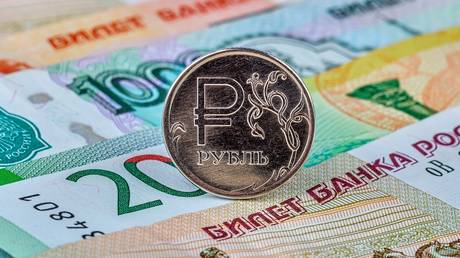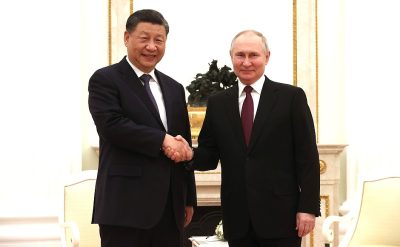CONTORTIONIST ACT: G7 experts claim that seizing frozen Russian assets is legal given Russia’s âunlawful conductâ toward Ukraine

CONTORTIONIST ACT: G7 experts claim that seizing frozen Russian assets is legal given Russia’s “unlawful conduct” toward Ukraine
A group of lawyers for the G7 nations has released a letter in which they argue that confiscating Russian funds that the G7 froze in 2022 does not go against international law due to the scale of Russia’s “unlawful conduct” toward Ukraine.
The countries froze roughly $280 billion of Russian sovereign funds shortly after the war began in February 2022, and now the U.S. and UK have been calling for the money to be seized and given to the Ukrainian government.
The letter was signed by 10 experts in international law from the U.S., UK, the Netherlands, Japan, France, Belgium and Germany.
The letter states: “Having given our most serious consideration to this issue, we have concluded that it would be lawful, under international law, for States which have frozen Russian State assets to take additional countermeasures against Russia, given its ongoing breach of the most fundamental rules of international law.”
They also claimed that freezing the assets and implementing sanctions against Russia are “lawful countermeasures,” but that any reprisals by Russia would be considered illegal.
They added that the Russian assets can be seized “as compensation for the damage that has resulted directly from Russia’s unlawful conduct.”
Russian media sources accuse the letter’s signatories of being biased. For example, one of the signatories, Harold Hongju Koh of Yale Law School, represents Ukraine before some international tribunals and served as a legal adviser to the State Department under the Obama administration.
Another signatory, Pierre Klein of the Universite Libre de Bruxelles, appeared as the keynote speaker in a pro-Ukraine webinar about seizing Russian assets. Philip Zelikow, who is a senior fellow at Stanford University’s Hoover Institution, is a former career diplomat who served as a strategic consultant for the Biden administration.
Russia has challenged the asset freeze, with the Russian Foreign Ministry warning America and its allies that they would be met with “very harsh” countermeasures if they seize the funds.
The letter comes as the G7 countries debate how to handle the assets, particularly as Ukraine continues to push for additional financing for its war efforts.
Ahead of U.S. Treasury Secretary Janet Yellen’s trip to Brazil to meet her G20 counterparts, some of which continue to conduct business with Russia, a senior Biden administration official said she was clear that it would be "both appropriate but also urgent for us to consider ways that Russian assets can be used to benefit Ukraine consistent with international and domestic law."
Europe moves to set aside profits from frozen assets for Ukraine
A meeting of G7 officials is expected next week during the G20 gathering, and some countries are expected to argue that seizing the principal assets could set a dangerous precedent. France, Germany and Italy have opposed seizing the assets on the grounds that sovereign assets have immunity under international law, while the European Central Bank has warned that such a move may undermine the euro.
This month, the Council of the EU adopted a decision that creates a legislative route through which the profits from confiscated Russian assets can be funneled to Ukraine through the EU budget.
The council ruled that central securities depositories must set aside any of the profits they earn and hold them separately. According to Euroclear, which holds a large percentage of the frozen Russian assets in the European Union, these profits are more than €4 billion per year. Seizing the profits is considered a far less risky move than seizing the assets themselves.
Not surprisingly, the news of the EU council’s decision was welcomed by the foreign minister of Ukraine, Dmytro Kuleba, who said: "Ukraine is ready to continue working with partners on reaching our ultimate goal: making Russian assets available to Ukraine. The aggressor must pay."
Sources for this article include:



